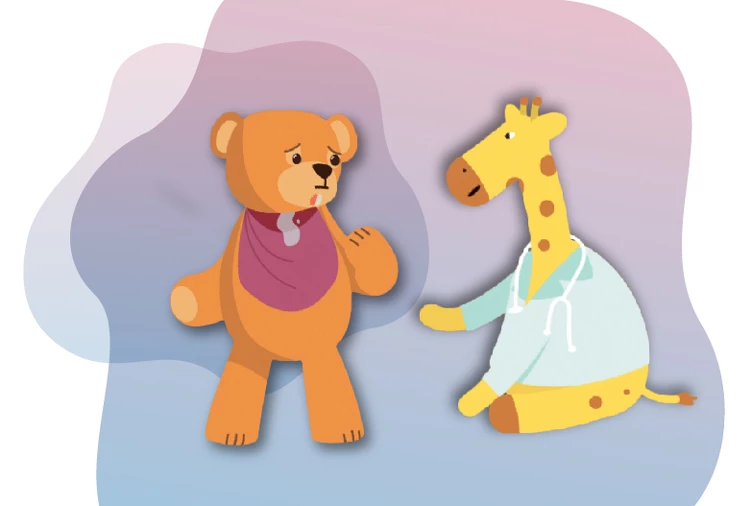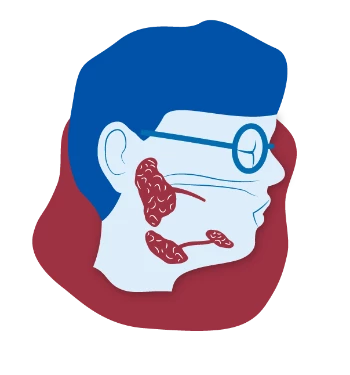How excessive drooling affects children

- Understanding Drooling
12/01/2024
3 min

Sialorrhoea, or sialorrhea in the US, is the unintentional loss of saliva from the mouth. It affects approximately 22 to 40% of children with cerebral palsy. The condition can also affect children with other neurological conditions such as Worster Drought syndrome, Down syndrome, and Autism.
From lung infections and skin irritation to social isolation and bullying, excessive drooling (sialorrhoea) impacts physical and emotional well-being, particularly in children aged four and above.
Understanding these is crucial in tackling misconceptions and making the condition more manageable for children and those around them.
While it is normal to feel stressed or isolated at times when working to alleviate the effects of excessive drooling for the child, there is no reason to feel ashamed or embarrassed about what is required to keep your child comfortable.
Parents and carers could also be subjected to assumptions. Parents of children with severe cases of sialorrhoea may need to wash and change clothing more often, due to excess saliva, potentially inviting judgements about cleanliness from others.
Developing an understanding of excessive drooling is crucial for addressing the associated stigmas surrounding the condition.
GB-CPL-061-067
January 2024
Back to BlogsFrom lung infections and skin irritation to social isolation and bullying, excessive drooling (sialorrhoea) impacts physical and emotional well-being, particularly in children aged four and above.
Understanding these is crucial in tackling misconceptions and making the condition more manageable for children and those around them.
The physical effects of drooling
While it may seem that excess saliva is a straightforward symptom to deal with, it has a significant impact on quality of life, especially for children and young people.- Skin sores: Drooling can irritate the skin around the mouth, chin, and neck, which becomes cracked, red, and sore.
- Lung infections: Saliva can flow down the airway, rather than the oesophagus, causing lung infections.
- Dehydration: Regular loss of saliva out of the mouth can cause dehydration.
- Wetting of clothing and bedding: Excessive drooling can lead to regular wetting of clothing and bedding, leaving an unpleasant smell and requiring multiple changes throughout the day.
The emotional effects of drooling
The physical effects are the most noticeable, but there are also significant impacts on a child’s emotional well-being.- Reduced self-esteem: They may drool and require a dribble bib to avoid wetting their clothes. As children get older and become more conscious of their drooling, they could feel embarrassed, especially when out in public.
- A barrier to education: Drooling can lead to damage to books, electronic devices, and equipment.
- Underestimated mental capacity: Society tends to associate drooling with infancy, so when seen in older children, their peers and even adults can make unfair assumptions about their mental abilities, which can influence their opportunities for social interaction.
- Challenges in social situations: Peers may be reluctant to share toys, books, and electronic devices in cases of severe drooling where objects may become wet. Difficult social interactions can increase isolation and lower self-esteem for children with excessive drooling.
Impact on parents, carers, and relatives
Caring for a child or relative with excessive drooling takes energy and patience, which can understandably lead to stress. There may be more washing and changing of clothes, for example, to help keep your child clean, dry, and comfortable.While it is normal to feel stressed or isolated at times when working to alleviate the effects of excessive drooling for the child, there is no reason to feel ashamed or embarrassed about what is required to keep your child comfortable.
Assumptions and stigmas
Drooling can lead to unfair assumptions and judgements from others. Some, including adults, may underestimate the mental abilities of a child with sialorrhoea, which can affect their education.Parents and carers could also be subjected to assumptions. Parents of children with severe cases of sialorrhoea may need to wash and change clothing more often, due to excess saliva, potentially inviting judgements about cleanliness from others.
Developing an understanding of excessive drooling is crucial for addressing the associated stigmas surrounding the condition.
Speak to your child’s healthcare professional
For more information on excessive drooling, or if you notice your child’s drooling is causing discomfort or affecting daily life, you may wish to consult their healthcare professional.GB-CPL-061-067
January 2024
Related Blogs

- Understanding Drooling
Excessive drooling, also known as sialorrhoea in the UK and sialorrhea in the US, is the unintentional loss of saliva from the mouth and can be distressing for children and their families, especially those aged four and above.
Read More12/01/2024
2 min
